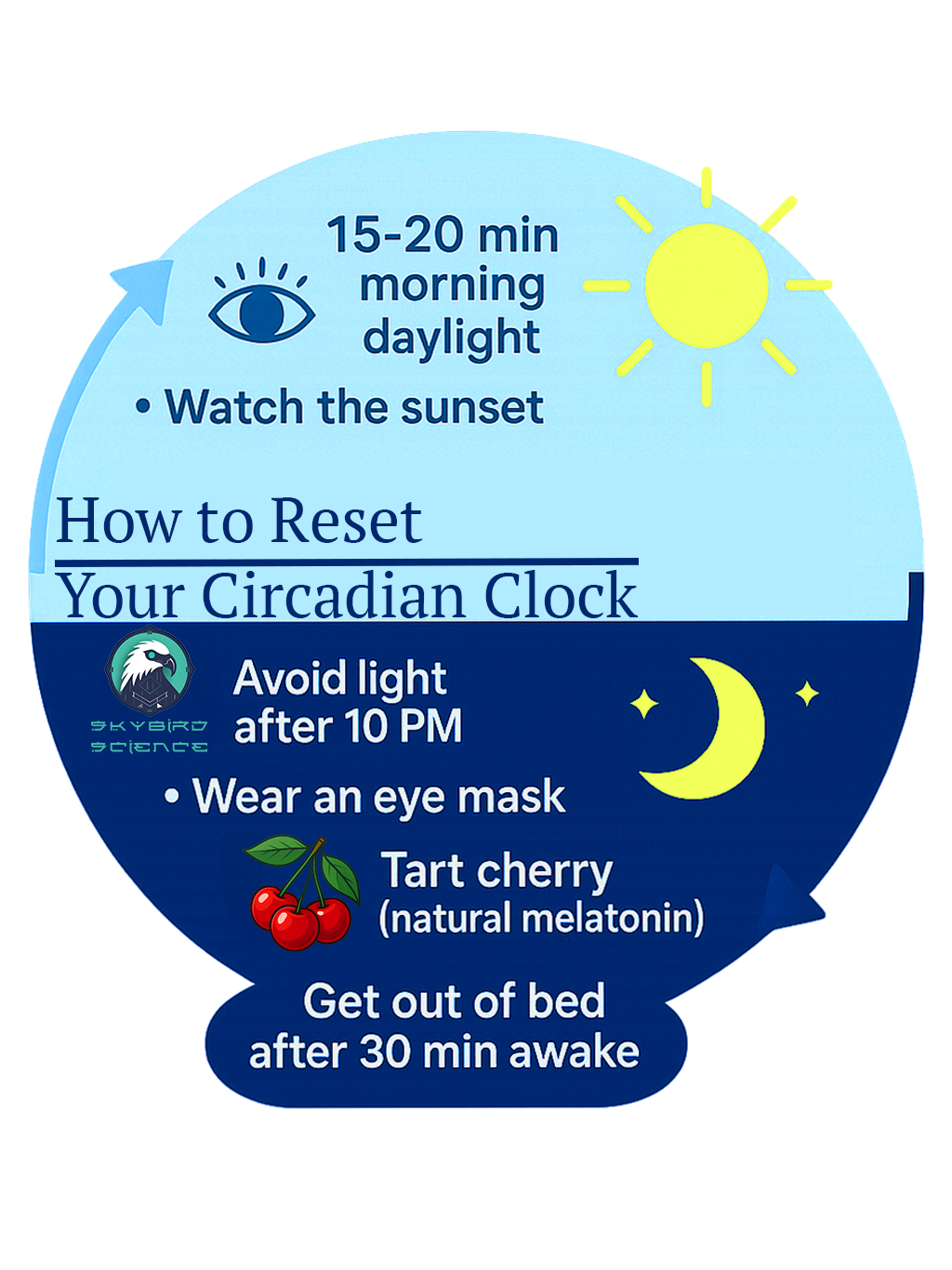Morning:
Why it helps: Signals from sunrise/daylight tells your eyes it’s daytime and starts the circadian clock
Why it helps: Signals the end of the day for the eyes; research shows it may also limit the negative effects of bright/blue lights afterwards.
Why it works: Not always easy, but worth it. It helps promote normal sleep/wake times when done consistently.
Evening:
Overhead lights, desk lamps above waist level, tablets and phones. Night lights are ok, especially amber ones.
Why it helps: This helps your eyes know it is nighttime. After 10pm any amount of light tells your it is daytime, preventing the pineal gland from secreting melatonin. The sensors responsible are called retinal ganglion photoreceptors—even in blind people!
Note: works for same reason as above
Why it helps: Tart cherry helps your circadian clock transition to sleep via the pineal gland, which uses it to make melatonin at different times throughout the night.
Why this helps: Prevents the toss and turn because eventually the mind/body learns that the bed is not for daily activities. Works especially well when the bed isn’t used for reading. I’ll get up and into the living room or study area; meditate, pray, stretch, et cetera. When I’m sleepy I try again.


